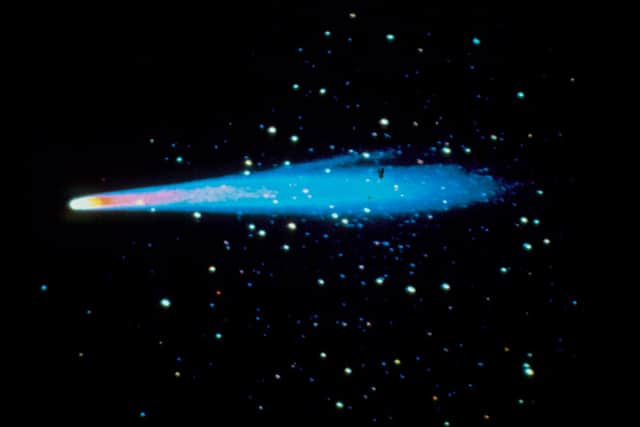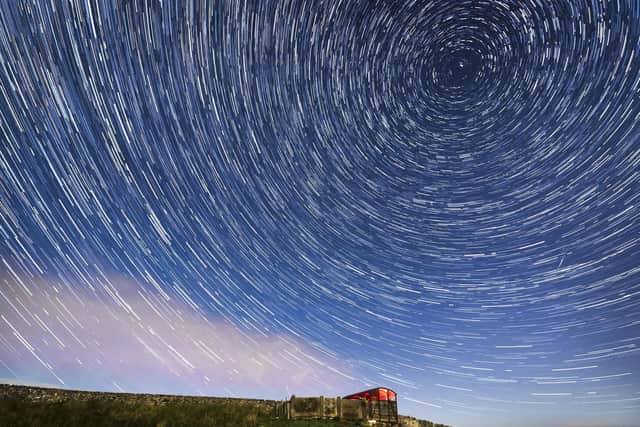Eta Aquariid Meteor Shower May 2023: when is it, will it be visible and stargazing tips
and live on Freeview channel 276
The Eta Aquariid Meteor Shower will sparkle across the Edinburgh night sky over the next few weeks. The annual event is set to dazzle stargazers across the UK.
The Eta Aquariids is a moderately active meteor shower, and one of two meteor showers created by debris from Comet Halley. The other is the Orionid meteor shower which comes in October.
Advertisement
Hide AdAdvertisement
Hide AdLike with most meteor showers, the name comes from the constellation in the night sky that it appears to radiate from. According to Royal Museums Greenwich, Eta Aquariids is from the Aquarius constellation. It is called the ‘Aquarid’ “because, more specifically, the name comes from one of the stars from this constellation: Eta Aquarii.”
So, will the Eta Aquariid Meteor Shower be visible from the UK and how can you see it? Here’s everything you need to know including top stargazing tips.
When is the Eta Aquariid meteor shower 2023?
The Eta Aquariid meteor shower is active between April 19 and May 28 2023.
Best time to watch the Eta Aquariid meteor shower
Eta Aquariid meteor shower will peak between midnight and dawn on May 6 2023, which is a Full Moon and when the Moon’s light will affect visibility. This shower can reach up to 18 meteors per hour.
Advertisement
Hide AdAdvertisement
Hide AdEta Aquariid meteor shower UK visibility
According to Royal Museums Greenwich, this shower favours the Southern Hemisphere and will appear low in the sky for northerly latitudes (such as the UK) in the early predawn hours.
Top Stargazing Tips
Stargazing is easy, you just go outside and look up at the night sky, however, there is much more to it than seeing the moon, stars and meteors sparkle above us.


The best tip is finding a dark-sky site, and making sure to check the weather forecast before going. Light pollution can often affect how much of the night sky occurrences we see, even more so the weather conditions can be cloudy which again would make it hard to see the stars.
Find a clear spot where you can see as close to the horizon as possible is a good starting point for finding a spot that will give you the best opportunity to see the sky if you are unable to get to a dark-sky site.
Advertisement
Hide AdAdvertisement
Hide AdStargazing is a really popular hobby for amateurs and professionals so it’s likely that there is a club near you, or that your friends have a similar interest. Finding a buddy or club to join on the cold dark nights is always helpful, and one of the best ways to stay safe when stargazing.


EarthSky advises beginners not to invest in a telescope straight away, they are a big investment so start with binoculars if you are wanting to get a closer look. It’s worth noting that it’s possible to see many of the night sky events with just your eyes in the right conditions.
Comment Guidelines
National World encourages reader discussion on our stories. User feedback, insights and back-and-forth exchanges add a rich layer of context to reporting. Please review our Community Guidelines before commenting.
